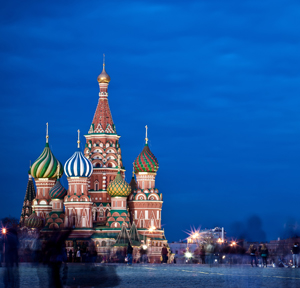Investment Strategies
Guest Comment: There Are "Green Shoots" On View In Russia - Renaissance

Editor’s note: Below is commentary from Jesse Sherman, part of the investment team for emerging Europe at Renaissance Asset Managers. He is talking about the prospects for Russia. As ever, while this publication is pleased to use this material, the views expressed here are the author’s own.
The news out of Russia over the last ten months has been pretty grim. Pictures of Russian protest rallies vied with articles detailing allegations of election fraud and the sentencing of three members of the punk band Pussy Riot, which prompted widespread condemnation.
On the corporate front, BP is doing battle with its Russian partners Alfa Access Renova (AAR) in TNK-BP as part of the British company’s second attempt to tie up with state-owned Rosneft. And President Vladimir Putin’s electrifying election promise to move Russia up 100 places in the World Bank’s “Doing Business” survey to 20th by 2018 seems to have fallen on deaf ears.
Investors are clearly fed up with the headlines and have become inured to promises of change by years of stalled reforms and perceived empty promises. So, where do we go from here?
Despite market sentiment being at an all-time low, the “green shoots” of improved corporate governance and market reform are there if you want to see them.
How far we’ve travelled
First and foremost, it is important to note how far the Russian market has progressed. Not that long ago the standard practice for companies was financial statements in Russian only, limited access to management, and neither investor relations departments nor result conference calls. Today, nearly every major company issues quarterly/semi-annual statements (in English) to international accounting standards, investor relations is a well-developed expertise, and management teams visit investors multiple times a year on road shows in addition to participating in innumerable conferences. More improvement is in the works, as all Russian listed companies will be required to produce IFRS results in 2013.
And the changes are not limited to the private sector. Over the past couple of years, we’ve seen state-controlled companies rationing investment spending and increasing free cash flow generation. The Russian government has applied further pressure to increase efficiency, requiring a minimum 25 per cent dividend payout on RAS financial accounts, which could soon be applied to IFRS results, perhaps raising the payout even higher.
While there are many market reforms underway, the most important is the long-awaited establishment of a Russian Central Depository this autumn. Fixed-income securities will feel the impact first, but the long-term benefits will reach equity markets over the next few years. Greater transparency and market depth will be helped by the requirement to disclose ultimate beneficiaries in order to receive dividends and in the medium term by the expected fungibility of local shares and depository receipts.
Almost unnoticed by the market, Russia finally became a member of the World Trade Organisation after 18 years of negotiations on 22 August – the last member of the G8 to join. While Russia’s accession is unlikely to have the profound impact that WTO membership had on China in 2001, this is still an important milestone in the country’s history. In the short term, Russia’s exporters are expected to gain immediately from the lowering of trade barriers by as much as $1.5-2 billion per annum, and lower tariffs on imports are expected to drive increasing consumer power and spending. In the long term, the change could be transformational as Russian companies feel the heat of full and unfettered competition.
Even the government is slowly starting to clean up its act after then-president and now Prime Minister Dmitry Medvedev required all government officials to step down as board members of state-run entities in 2011. Currently, new draft laws are under discussion by the Duma that will require state employees to disclose their offshore assets and maybe even limit ownership of such assets.
While Russia still has to travel a long road before its corporate governance and market reforms can be considered on a par with its global peers, the “green shoots” are already breaking through. In our view, the question is more an issue of when rather than if.
Clearly, Russia’s year-to-date stock market performance of +10.2 per cent vs. +15.7 per cent for the MSCI World and +32.4 per cent for Turkey presents a tremendous opportunity.
